Filter by

Fables and futures :biotechnology, disability, and the stories we tell ourselves
How new biomedical technologies--from prenatal testing to gene-editing techniques--require us to imagine who counts as human and what it means to belong. From next-generation prenatal tests, to virtual children, to the genome-editing tool CRISPR-Cas9, new biotechnologies grant us unprecedented power to predict and shape future people.OCLC-licensed vendor bibliographic record.
- Edition
- -
- ISBN/ISSN
- 9780262351799
- Collation
- 1 online resource (240 pages).
- Series Title
- -
- Call Number
- -
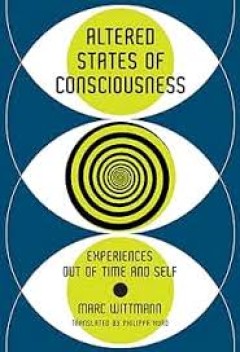
Altered states of consciousness :experiences out of time and self
"What altered states of consciousness--the dissolution of feelings of time and self--can tell us about the mystery of consciousness. During extraordinary moments of consciousness--shock, meditative states and sudden mystical revelations, out-of-body experiences, or drug intoxication--our senses of time and self are altered; we may even feel time and self dissolving. These experiences have long …
- Edition
- -
- ISBN/ISSN
- 9780262347730
- Collation
- 1 online resource (xiv, 176 pages) :illustrations
- Series Title
- -
- Call Number
- -
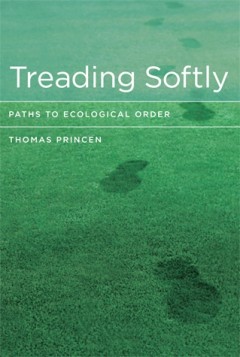
Treading Softly: Paths to Ecological Order
"We are living beyond our means, running up debts both economic and ecological, consuming the planet's resources at rates not remotely sustainable. But it's hard to imagine a different way. How can we live without cheap goods and easy credit? How can we consume without consuming the systems that support life? How can we live well and live within our means? In Treading Softly, Thomas Princen hel…
- Edition
- -
- ISBN/ISSN
- 9780262266079
- Collation
- 1 online resource (xi, 210 pages)
- Series Title
- -
- Call Number
- -
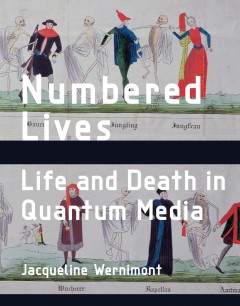
Numbered lives :life and death in quantum media
A feminist media history of quantification, uncovering the stories behind the tools and technologies we use to count, measure, and weigh our lives and realities. Anglo-American culture has used media to measure and quantify lives for centuries. Historical journal entries map the details of everyday life, while death registers put numbers to life's endings. Today we count our daily steps with fi…
- Edition
- -
- ISBN/ISSN
- 9780262350174
- Collation
- 1 online resource (240 pages).
- Series Title
- -
- Call Number
- -
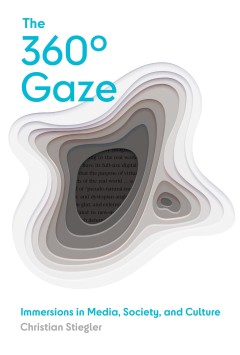
The 360? gaze :immersions in media, society, and culture
"A history of Immersion from Plato's cave to the Oculus Rift"--OCLC-licensed vendor bibliographic record.
- Edition
- -
- ISBN/ISSN
- 9780262363310
- Collation
- 1 online resource.
- Series Title
- -
- Call Number
- -
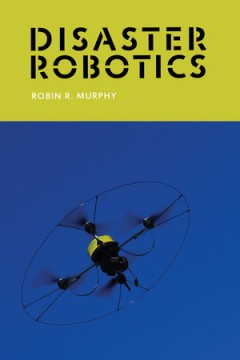
Disaster robotics
This book acts as a guide to the theory and practice of disaster robotics. It can serve as an introduction for researchers and technologists, a reference for emergency managers, and a textbook in field robotics. After an overview of rescue robotics in the context of emergency informatics, it provides a chronological summary and formal analysis of the thirty-four documented deployments of robots…
- Edition
- -
- ISBN/ISSN
- 9780262321303
- Collation
- 1 online resource (xvl, 224 pages) :illustrations.
- Series Title
- -
- Call Number
- -
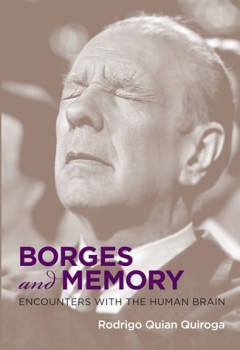
Borges and memory :encounters with the human brain
Discusses the science of memory and the interpretation of memory in the novels of Jorge Luis Borges and earlier literatures.OCLC-licensed vendor bibliographic record.
- Edition
- -
- ISBN/ISSN
- 9780262305877
- Collation
- 1 online resource (ix, 213 pages) :illustrations
- Series Title
- -
- Call Number
- -
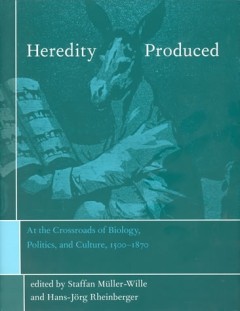
Heredity produced : at the crossroads of biology, politics, and culture, 1500…
The cultural history of heredity: scholars from a range of disciplines discuss the evolution of the concept of heredity, from the Early Modern understanding of the act of "generation" to its later nineteenth-century definition as the transmission of characteristics across generations. Until the middle of the eighteenth century, the biological makeup of an organism was ascribed to an individu…
- Edition
- -
- ISBN/ISSN
- 9780262280334
- Collation
- 1 online resource (x, 496 pages, 2 pages of plates) : illustrations (some color).
- Series Title
- Transformations: Studies in the History of Science and Technology
- Call Number
- 580 HER
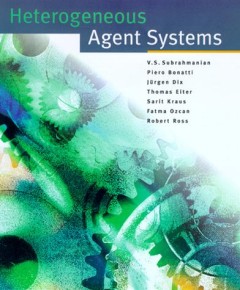
Heterogeneous agent systems
Software agents are the latest advance in the trend toward smaller, modular pieces of code, where each module performs a well-defined, focused task or set of tasks. Programmed to interact with and provide services to other agents, including humans, software agents act autonomously with prescribed backgrounds, beliefs, and operations. Systems of agents can access and manipulate heterogeneously s…
- Edition
- -
- ISBN/ISSN
- 9780262284561
- Collation
- 1 online resource (xiv, 580 pages) : illustrations
- Series Title
- -
- Call Number
- 001 SUB h
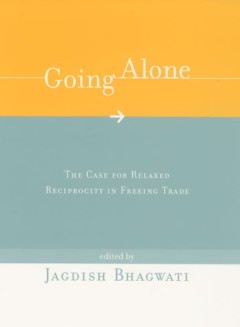
Going alone :the case for relaxed reciprocity in freeing trade
An analytic and empirical study of unilateral trade liberalization agreements, from the nineteenth century to the present.Since the end of World War II, the freeing of trade has been most visible in reciprocal liberalization agreements negotiated under the General Agreement on Tariffs and Trade, or GATT, and through increasing bilateral and plurilateral agreements. There has also, however, been…
- Edition
- -
- ISBN/ISSN
- 9780262268455
- Collation
- 1 online resource (xii, 586 pages) : illustrations
- Series Title
- -
- Call Number
- -
 Computer Science, Information & General Works
Computer Science, Information & General Works  Philosophy & Psychology
Philosophy & Psychology  Religion
Religion  Social Sciences
Social Sciences  Language
Language  Pure Science
Pure Science  Applied Sciences
Applied Sciences  Art & Recreation
Art & Recreation  Literature
Literature  History & Geography
History & Geography